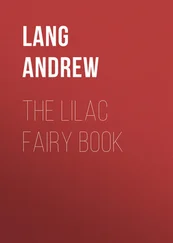Andrew Lang - The True Story Book
Здесь есть возможность читать онлайн «Andrew Lang - The True Story Book» — ознакомительный отрывок электронной книги совершенно бесплатно, а после прочтения отрывка купить полную версию. В некоторых случаях можно слушать аудио, скачать через торрент в формате fb2 и присутствует краткое содержание. Жанр: foreign_antique, foreign_prose, на английском языке. Описание произведения, (предисловие) а так же отзывы посетителей доступны на портале библиотеки ЛибКат.
- Название:The True Story Book
- Автор:
- Жанр:
- Год:неизвестен
- ISBN:нет данных
- Рейтинг книги:3 / 5. Голосов: 1
-
Избранное:Добавить в избранное
- Отзывы:
-
Ваша оценка:
- 60
- 1
- 2
- 3
- 4
- 5
The True Story Book: краткое содержание, описание и аннотация
Предлагаем к чтению аннотацию, описание, краткое содержание или предисловие (зависит от того, что написал сам автор книги «The True Story Book»). Если вы не нашли необходимую информацию о книге — напишите в комментариях, мы постараемся отыскать её.
The True Story Book — читать онлайн ознакомительный отрывок
Ниже представлен текст книги, разбитый по страницам. Система сохранения места последней прочитанной страницы, позволяет с удобством читать онлайн бесплатно книгу «The True Story Book», без необходимости каждый раз заново искать на чём Вы остановились. Поставьте закладку, и сможете в любой момент перейти на страницу, на которой закончили чтение.
Интервал:
Закладка:
I now began to attend to some of the ceremonies of what may be called the initiation of warriors, this being the first time I had been on a war-party. For the first three times that a man accompanies a war-party, the customs of the Indians require some peculiar and painful observances, from which old warriors may, if they choose, be exempted. The young warrior must constantly paint his face black; must wear a cap, or head-dress of some kind; must never precede the old warriors, but follow them, stepping in their tracks. He must never scratch his head, or any other part of his body, with his fingers, but if he is compelled to scratch he must use a small stick; the vessel he eats or drinks out of, or the knife he uses, must be touched by no other person.
The young warrior, however long and fatiguing the march, must neither eat, nor drink, nor sit down by day; if he halts for a moment, he must turn his face towards his own country, that the Great Spirit may see that it is his wish to return home again.
It was Tanner's wish to return home again, and after many dangerous and disagreeable adventures he did at last, when almost an old man, come back to the Whites and tell his history, which, as he could not write, was taken down at his dictation. 2 2 From Tanner's Captivity . New York, 1830.
CASANOVA'S ESCAPE
IN July 1755 Casanova di Seingalt, a Venetian gentleman, who, by reason of certain books of magic he possessed, fell under the displeasure of the Church, was imprisoned by order of the Inquisition in a cell in the ducal palace.
The cell in which he was imprisoned was one of seven called 'The Leads,' because they were under the palace roof, which was covered neither by slates nor bricks, but great heavy sheets of lead. They were guarded by archers, and could only be reached by passing through the hall of council. The secretary of the Inquisition had charge of their key, which the gaoler, after going the round of the prisoners, restored to him every morning. Four of the cells faced eastward over the palace canal, the other three westward over the court. Casanova's was one of the three, and he calculated that it was exactly above the private room of the inquisitors.
For many hours after the gaoler first turned the key upon Casanova he was left alone in the gloomy cell, not high enough for him to stand upright in, and destitute even of a couch. He laid aside his silk mantle, his hat adorned with Spanish lace and a white plume – for, when roused from sleep and arrested by the Inquisition, he had put on the suit lying ready, in which he intended to have gone to a gay entertainment. The heat of the cell was extreme: the prisoner leaned his elbows on the ledge of the grating which admitted to the cell what light there was, and fell into a deep and bitter reverie. Eight hours passed, and then the complete solitude in which he was left began to trouble him. Another hour, another, and another; but when night really fell, to take Casanova's own account,
'I became like a raging madman, stamping, cursing, and uttering wild cries. After more than an hour of this furious exercise, seeing no one, not hearing the least sign which could have made me imagine that anyone was aware of my fury, I stretched myself on the ground… But my bitter grief and anger, and the hard floor on which I lay, did not prevent me from sleeping.
'The midnight bell woke me: I could not believe that I had really passed three hours without consciousness of pain. Without moving, lying as I was on my left side, I stretched out my right hand for my handkerchief, which I remembered was there. Groping with my hand – heavens! suddenly it rested upon another hand, icy cold! Terror thrilled me from head to foot, and my hair rose: I had never in all my life known such an agony of fear, and would never have thought myself capable of it.
'Three or four minutes I passed, not only motionless, but bereft of thought; then, recovering my senses, I began to think that the hand I touched was imaginary. In that conviction I stretched out my arm once more, only to encounter the same hand, which, with a cry of horror, I seized, and let go again, drawing back my own. I shuddered, but being able to reason by this time, I decided that while I slept a corpse had been laid near me – for I was sure there was nothing when I lay down on the floor. But whose was the dead body? Some innocent sufferer, perhaps one of my own friends, whom they had strangled, and laid there that I might find before my eyes when I woke the example of what my own fate was to be? That thought made me furious: for the third time I approached the hand with my own: I clasped it, and at the same instant I tried to rise, to draw this dead body towards me, and be certain of the hideous crime. But, as I strove to prop myself on my left elbow, the cold hand I was clasping became alive, and was withdrawn – and I knew that instant, to my utter astonishment, that I held none other than my own left hand, which, lying stiffened on the hard floor, had lost heat and sensation entirely.'
That incident, though comic, did not cheer Casanova, but gave him matter for the darkest reflections – since he saw himself in a place where, if the unreal seemed so true, reality might one day become a dream. In other words, he feared approaching madness.
But at last came daybreak, and by-and-by the gaoler returned, asking the prisoner if he had had time to find out what he would like to eat. Casanova was allowed to send for all he needed from his own apartments in Venice, but writing-implements, any metal instruments whatever, even knife and fork, and the books he mentioned, were struck from his list. The inquisitors sent him books which they themselves thought suitable, and which drove him, he said, to the verge of madness.
He was not ill-treated – having a daily allowance given him to buy what food he liked, which was more than he could spend. But the loss of liberty soon became insupportable. For months he believed that his deliverance was close at hand; but when November came, and he saw no prospect of release, he began to form projects of escape. And soon the idea of freeing himself, however wild and impossible it seemed, took complete possession of him.
By-and-by he was allowed half an hour's daily promenade in the corridor (galetas) outside his cell – a dingy, rat-infested place, into which old rubbish was apt to drift. One day Casanova noticed a piece of black marble on the floor – polished, an inch thick and six inches long. He picked it up stealthily, and without any definite intention, managed to hide it away in his cell.
Another morning his eyes fell upon a long iron bolt, lying on the floor with other old odds and ends, and that also, concealed in his dress, he bore into his cell. When left alone, he examined it carefully, and realised that if pointed, it would make an excellent spontoon. He took the black marble, and after grinding one end of the bolt against it for a long while, he saw that he had really succeeded in wearing the iron down. For fifteen days he worked, till he could hardly stir his right arm, and his shoulder felt almost dislocated. But he had made the bolt into a real tool; or, if necessary, a weapon, with an excellent point. He hid it in the straw of his armchair so carefully that, to find it, one must have known that it was there; and then he began to consider what use he should make of it.
He was certain that the room underneath was the one in which on entering he had seen the secretary of the Inquisition, and which was probably opened every morning. A hole once made in the floor, he could easily lower himself by a rope made of the sheets of his bed, and fastened to one of the bed-posts. He might hide under the great table of the tribunal till the door was opened, and then make good his escape. It was probable, indeed, that one of the archers would mount guard in this room at night; but him Casanova resolved to kill with his pointed iron. The great difficulty really was that the hole in the floor was not to be made in a day, but might be a work of months. And therefore some pretext must be found to prevent the archers from sweeping out the cell, as they were accustomed to do every morning.
Читать дальшеИнтервал:
Закладка:
Похожие книги на «The True Story Book»
Представляем Вашему вниманию похожие книги на «The True Story Book» списком для выбора. Мы отобрали схожую по названию и смыслу литературу в надежде предоставить читателям больше вариантов отыскать новые, интересные, ещё непрочитанные произведения.
Обсуждение, отзывы о книге «The True Story Book» и просто собственные мнения читателей. Оставьте ваши комментарии, напишите, что Вы думаете о произведении, его смысле или главных героях. Укажите что конкретно понравилось, а что нет, и почему Вы так считаете.












